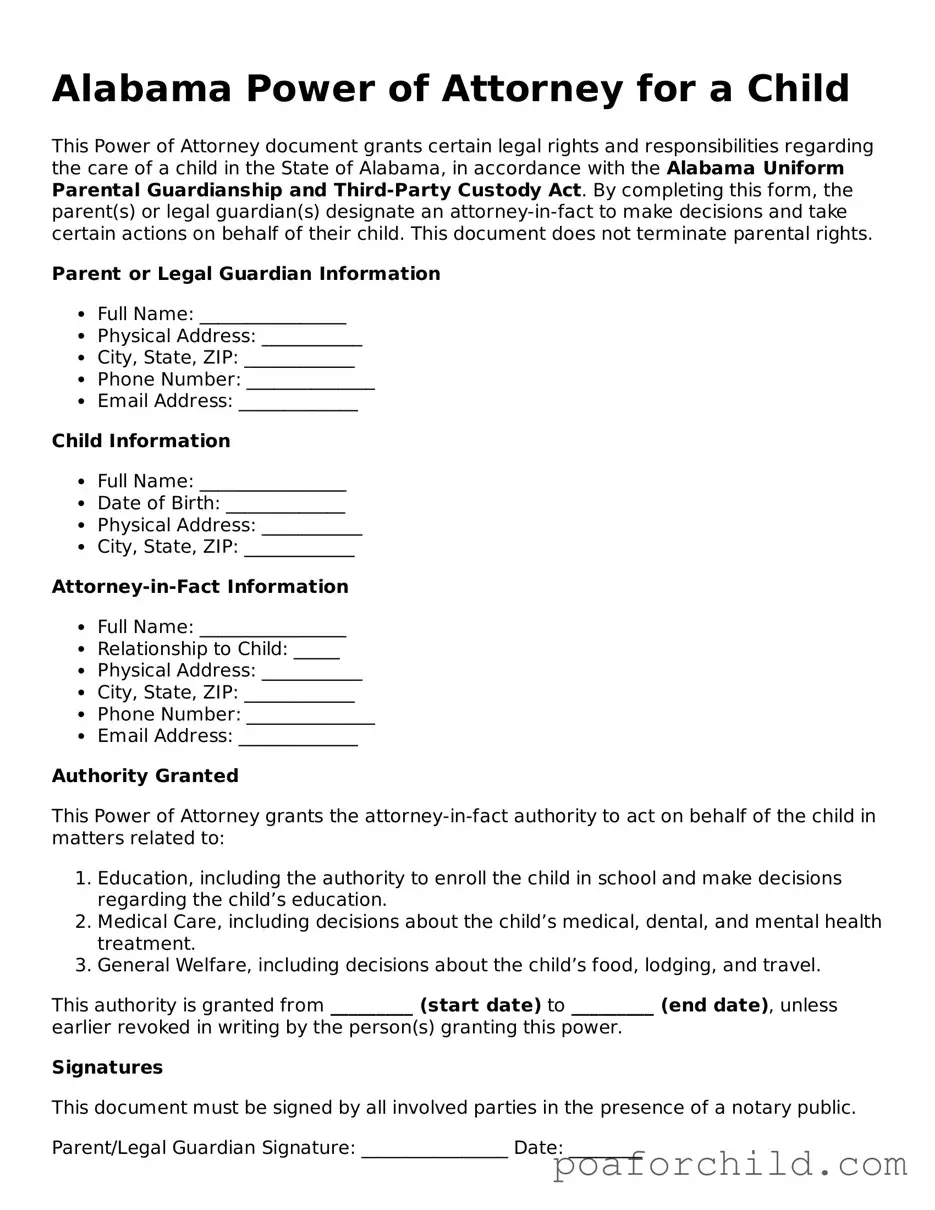Detailed Guide for Using Alabama Power of Attorney for a Child
Filling out the Alabama Power of Attorney for a Child form is a significant step for caregivers in Alabama who need to obtain legal authority to make decisions regarding a child in the absence of the parents. This document allows a parent to grant decision-making rights to a trusted adult concerning their child's healthcare, education, and other welfare matters. This process involves providing detailed information about the child, the parents, and the designated agent. Ensuring all sections are completed correctly is crucial for the form's acceptance and subsequent legal validity.
- Start by entering the current date at the top of the form.
- Write the full name(s) of the child or children covered under this power of attorney in the designated space.
- Fill in the complete address where the child currently resides.
- Next, provide the full name(s) of the parent(s) or current legal guardian(s) authorizing this power of attorney.
- Enter the full name of the person being designated as the agent (the individual who will have the authority to make decisions on behalf of the child).
- Detail the agent's complete address, ensuring it's where the agent can be reached.
- Specify the start and end dates for the power of attorney. This clarifies when the agent's authority begins and when it will expire.
- Outline the specific powers being granted to the agent. This section may include making educational decisions, consenting to medical treatment, and other welfare-related decisions.
- If there are any limitations to the powers granted, describe these restrictions in the space provided.
- Both the granting party (parent or legal guardian) and the designated agent must sign the form in the presence of a notary public.
- Lastly, ensure the form is notarized. This step typically requires the presence of a notary public who will verify the identities of all signing parties and witness the signing.
After completing these steps, the Alabama Power of Attorney for a Child form will be ready for use. It's advised to keep multiple copies of the notarized form. One copy should be given to the designated agent, another to the child's healthcare provider, and possibly one to the child's school. This ensures that the agent's authority is recognized and can be acted upon when necessary.
